- Home
- Jenni James
Medley of Fairy Tales and Fables Page 16
Medley of Fairy Tales and Fables Read online
Page 16
“Hear what?” Jane asked.
“Peter’s song!”
Emilia nodded and said she heard it too, and William bounded off again toward the end of the gray and dusty road. Emilia walked calmly beside Jane, but her fidgeting hands were a clue that she’d rather run along with William.
The road ran between two rows of single-wide trailer homes, each one with its tiny yard and its one car driveway and a little porch. There were swing sets and trampolines in the yards, where children played, and the children didn’t care that the sun was already burning their skin, or that their foreheads and arms glistened with sweat.
“Will!” cried a little boy about William’s age, “Where you going?”
“We’re going to play with Peter Pan!”
The boy’s mouth dropped open and he cocked his head, but he soon returned to playing and never looked back.
William arrived at the road’s end before his sisters, and he stared down into the riverbed, toward the trees. The swamp grass was littered with items the river brought during spring floods—old gray lumber, foam cups, truck tires, bottles. Cattails were thick along the riverbank.
The river had slowly eroded the land beneath the trailer park. Every few years there was a great downpour, and the river licked at the sandy edges of the shallow ravine and carved out more soil. The broken steel and brick foundations of abandoned trailers now hung over the edge where there was once solid ground.
William leaped into the riverbed, and landed with a soft thump in the sand, then stood and brushed the sand off his hands and legs. He looked up at Jane and Emilia. “C’mon!”
Emilia searched Jane’s face. “Are you afraid?”
Jane was afraid, but she told Emilia she wasn’t, and they jumped together.
William led the way into the weeping willows and cotton-woods. The huge tree trunks and limbs were bigger than anything that grew in peoples’ yards. Dead, fallen limbs littered the ground everywhere. Dots of sunlight shone through the canopy and made odd shapes on the ground and in the slow-moving water. All kinds of plants grew happily beneath the trees, plants that their mother would have plucked from their flower patch without a second thought. Here they seemed to decorate everything with their yellow, purple and white flowers.
“Peter?” William shouted up into the trees. “Peter!”
Jane listened. The lapping sound of the slow river seemed to enclose her with the flies, bees, wasps, and crickets. Who knew what lay in the darkness that surrounded the grove in the swamp willows and cattails? It all began to seem dreadful to her and she backed away from the clearing and pulled William by the shirt sleeve. She was about to take Emilia’s hand when—
“Hullo!”
The voice of a little child called out from high in the trees.
William shrieked with delight and pointed.
“That’s him,” Emilia whispered.
“I said, hullo!”
Peter leaped from the high branch on which he stood and floated down toward them head first. Just before landing he swung upright and planted his bare feet softly in the sand. His cheeks were freckled and pink, long lashes framed his blue eyes, and his strawberry blonde hair stuck out in different lengths, as if cut haphazardly with the short sword he wore on his leather belt. His tunic was made of hundreds of green leaves.
When Jane saw that Peter was a real, flying, wild-looking boy, she stumbled backward and fell into the sand, as any normal grown up would have done.
Peter bared his perfect white teeth and rose into the air, then pulled the sword from his belt. He took to the air and hovered upside down above Jane, and thrust his sword toward her. He gnashed his teeth like an angry dog. “Who is this?”
“She’s our sister!” Emilia cried. “It’s okay.”
Jane trembled and tried not to cry.
Peter came nose-to-nose with Jane, and he gazed into her eyes disapprovingly. “She acts like a grown-up, but seems like a child.” He smiled, but only for a second, before he flipped around backward and landed on his feet.
“I remember you,” Peter said to William and Emilia. “I don’t remember too many things, but you two, I remember. Today we fly away to—” Peter stared at the gold ring on his finger for a moment. “Today we wait for Tink. And we play.”
“Catch us another fish!” William cried. “Another big ugly one.”
Peter tucked the sword back into his belt and flew to a high branch, where he was half hidden behind leaves. “This is the dullest place in all the world,” he said, with his nose turned up. “In Neverland I have crocodiles and fairies and Indians and mermaids and—”
“Mermaids,” Emilia muttered, caught up in a daydream.
“Yes!” Peter floated away from the branch and hovered above the slow brown river. His eyes sparkled. “From here, we’ll follow the third star to the right and straight on till morning. We’ll fly with the never-eagles, and steal chocolate biscuits from their beaks! We’ll lie in the warm nests of the neverbirds, and follow dragons to their lairs. We’ll kill a dozen pirates and watch the rest of ‘em run!”
William cheered.
Jane tried to imagine eagles that carried chocolate biscuits in their beaks.
Emilia was still whispering to herself about mermaids.
“All you have to do is come away with me.” Peter shot into the air and through the canopy. Soon, he was only a dot in the sky, and Jane’s brother and sister hopped up and down with their arms stretched upward.
Jane was still trembling, and her eyes were watering, but she was the one in charge and she was having none of this. She took William and Emilia each by the wrist. “We’ve got to go. C’mon!”
Peter returned just as quickly as he had gone, and found Jane leading the children away. The joy drained from his face, and his eyes bulged. He bared his teeth at her again and the little pearls shone, with their pink gums. “Away with her!”
“But Peter—” Emilia began.
“Away with you all!” Peter motioned to Emilia and William with his sword. “I’ll call you two back here at sunrise,” he said. “But leave her at home.” Then he disappeared into the trees.
The children passed the rest of the day and all evening debating what should be done. Miriam came home from work and heard their whispering and bickering, and when she asked what the problem was, they were sullen and told her nothing was the matter.
Jane argued that they should tell their mother everything, and several times she nearly went to do it. But her siblings protested.
“Peter Pan wants to kidnap you.” If Jane could have shouted, she would have. But Miriam was in the other room, so she whispered as harshly as she could.
Emilia pointed out that it’s not kidnapping if it’s all just children playing. Jane didn’t like that, but she couldn’t argue against it.
“But what if you forget about mom, like Wendy, John and Michael forgot about their mom and dad?” Jane asked.
Emilia and William were confounded for a moment. But Emilia came up with a plan. “We will tell each other stories the whole time—about mom, and home, and school. We’ll take turns telling stories so that we don’t forget. That is how Wendy helped John and Michael to remember.”
Jane was too grown up to think a trip to Neverland was a good idea, but Emilia’s plan was a good one, and would keep them from forgetting. Yet, she could still not allow it. It wasn’t responsible. And someone could get hurt!
They voted. Jane was the oldest, so her vote counted double. When the vote ended in a tie Jane cast the tiebreaker and the younger children were outnumbered—Jane’s three votes against their two.
By bedtime it was settled—they would not return to the river and they would have nothing more to do with Peter Pan. Jane was satisfied.
Chapter 4
S coots was certainly the most feared pirate since Pegleg Dan, and possibly the most feared since Hook, but he was not much respected.
Most pirates thought that a Captain should have a name worthy of their fa
mous old ship, the Jolly Roger. Furthermore, Scoots hated his name, so it seemed logical that he should change it. But he refused! He was a very young child when Peter Pan lured him away from his mother and brought him to Neverland, and it was Peter who gave him that ridiculous name and made him forget his mother and the name she gave him.
Blast Peter Pan and his endless succession of Tinker fairies!
Most lost boys returned to the mainland and to their mothers after they grew too large for Peter’s liking, and they remembered Neverland as nothing more than a strange dream. They went back to their schools and became doctors, lawyers, businessmen and bankers. They raised families and died old.
The lost boys who forgot their names and who forgot their mothers’ faces wandered the mainland gazing into the eyes of every woman, hoping to find that beloved face. But they found only strangers who glanced back at them indifferently as they passed. These orphans returned to Neverland and became pirates.
Pirates grew up, sprouted long grizzled beards, lost their teeth, and usually died at a fine old age, when the captain accused them of mutiny and sent them to the plank. All pirates knew they would meet their end at the plank. It was so customary that it long ago replaced what used to be called a funeral.
Scoots was unique among pirates. Nobody knows how it happened, but Scoots managed to remember how to fly even after he grew up. He was the only flying pirate in the history of Neverland. This gave him clear advantages in battle because he could drop onto his opponents in the same way that a falcon takes a mouse.
He was not a handsome fellow, as most captains of the ship had been. He could not woo a mermaid or any other kind of maid. He was short and squat. His beard bushed outward and downward to his mid-chest where it seemed to rest nervously on his fat belly. His hair was a wild, black, wind-blasted wreck in need of a barber. His fat legs took him wherever he wanted to go as long as it wasn’t very far, and the fairy dust in his veins took him everywhere else.
Scoots was farsighted and he kept a wide monocle strapped to his left eye, which made that eye appear three times larger than the other. To see near he winked his right eye shut, and to see far he winked his left. One eye or the other was usually closed, and if both were open at once he saw everything muddled.
Like all pirates since the beginning of the Neverland pirates, Scoots longed to hold his sword to Peter’s throat and say, “Tis I! Your old slave, Scoots! See, now, who hath the advantage!”
Scoots was in no mood to speak with anyone that day, but there was a knock at his cabin door every few minutes. His good for naught sailors lost track of Peter Pan again and he suspected the boy was about to take him by surprise.
There came another rap at the door.
“So, now thou wantest to die?”
A voice outside the door trembled. “Cap’n, sir, we come to report, sir, on Peter Pan, sir.”
“Enter then, at thy peril.”
Two nervous sailors soon stood before him. They had seen the end to which other pirates came when they lost Peter, and they did not want to suffer the same fate. “Cap’n, we tracked thy great fiend.”
Scoots required that his sailors speak like the pirates of old, with thee and thou and thy and thine and other nonsensical words to replace you and your.
On hearing the news that they found Peter, Scoots grinned. He slapped the men on their backs, poured them each a glass of his best drink, and promoted them each to vice-captain.
“Let us go and spy him,” Scoots said.
The mens’ foreheads were now dripping with sweat, and their teeth chattered with fear, but Scoots was too busy rejoicing to notice.
“Well Cap’n, after we tracked him, we seem to have untracked him again.”
“Untracked? How so?”
“Well, as the matter goes—I mean, goeth—sir, we was watchin’ him, and we was mindin’ him very well…”
“Yes. Go on.”
“...and, sir, we thought there was no harm in napping...”
“Hmm...Foolish rogues. Go on.”
“...Well, sir, we hadn’t slept for days…”
“Imbeciles! Continue.”
“...but it seems in those two hours…”
“Two!”
“...verily, Cap’n, sir, for we were very drowsy…”
“In Hook’s name, what milk-livered codfishes ye are!”
“...In those two hours, thy fiend and his fairy planned a trip to the mainland. A very proper trip, sir. A stealthy one, Cap’n, sir.”
By then, Scoots had opened both eyes and everything was blurred before him. His bushy brows were raised, and his lips were curved into a crooked grimace that shifted from one side of his mouth to the other. “I’ve no choice, then, but to—”
“Cap’n!”
“Speak.”
“I vaguely recall—”
“Vaguely?”
The sailor winced and fell to his knees. “Nay, Cap’n, I certainly do recall, that Peter Pan and his Tinker fairy spoke of going to Kensington Gardens—”
“Kensington! Peter’s old stomping grounds, eh?”
“But as I listened, his Tinker jingles her little bells, you see, and wiggles her little fingers and shakes her little head, you see.”
“And?”
“And Peter says, ‘You’re right, Tink! Kensington is no fun. This time, we’ll follow the third star to the left.’”
Flying toward the stars by counting from the first star is nonsense, unless fairy dust has been applied. Third star to the left made perfect sense to Scoots only because he understood the nonsense.
“A’ha!” Scoots’ grimace began to turn into a smile.
“And better news, Cap’n, sir. His Tinker returned alone last night.”
“Brilliant.”
“So, we was thinking that thou mayest fly to the third star on the left, and meet Peter there for a fair fight on the mainland—”
“Smashing idea, boys! A fair fight, without mermaids and without hordes of fairies and Indians and everyone else that spoils duels.” Scoots drew his sword and touched its point to a sailor’s chest. “Now, get out, before I run thee through.”
The men scrambled, and ran like nitwits into the closet, and once inside the closet they burst out again, searching frantically for the correct door. Then out they fled, with Scoots waving his sword and shouting.
Scoots eyed the open door and began to wonder whether his life’s purpose—to finally kill Peter Pan—was a harebrained scheme, an absurd diversion from the real work of pirating. Peter Pan was a kidnapper, a dreamer of dreams that other children could not dream. But Peter Pan was also a child, and Scoots himself was once a child too.
Who kills a child? Only a monster. “Am I a monster?” Scoots whispered.
He gazed into a mirror and tried to imagine himself many years before, without the beard, and much, much smaller...He was a child, and he played in Kensington Gardens, running among the shrubbery and around the trees. His young mother stood nearby with her back to him, gazing across a lily pond toward the hills. Although he could not remember her face, he knew that she was the loveliest woman in the world. He ran toward her to steal a hug and a kiss, but he heard another child call out, hullo, and he turned away from her. That was the last time he ever saw his mother and the first time he ever saw Peter Pan.
His mother’s face, her smile, and her embrace were lost to him. He couldn’t recall the name she called him, or the songs she used to sing.
Scoots turned away from the mirror. “I am no monster,” he whispered. “But there is a monster. Verily there is.” With his finger and thumb he picked up an old rusty thimble that sat on his desk, and he eyed it with his monocled eye. “I stole his kiss...and I shall steal the rest when—”
A light suddenly appeared at the window, a fairy. Scoots threw the window open and the fairy hummed inside and descended onto the lip of a stein from which Scoots had been drinking. Her bells immediately began to ring.
“Ah...Peter holed up, eh? Beside a riv
er, eh...and, what’s that? Oh, my! What luck!”
Scoots’ fairy friend, a Gardener by trade, and therefore much better than a cantankerous Tinker in his opinion, tracked Peter to the mainland and knew right where he was! A wonderful thing. A glorious thing!
“We must go. Tonight!”
Scoots put on his dark leather long-coat and adjusted his monocle. He tightened a belt on each boot and cinched his suspenders to help keep his clothes on while flying to the mainland. He slammed the cabin door behind him and leaped into the air and followed the fairy into the eastern sky.
Captain Scoots was not the only person who spied on his enemies. A Tinker had followed the Gardener fairy through the forest, across the harbor, and to the pirate ship, and she listened outside the pirate captain’s window and witnessed his flight toward the third star to the left.
She buzzed through the fairy tree calling all Tinkers to swarm together to save one of their own and to protect Peter Pan. Soon, a flurry of lights took to the sky, straight up into the blue and the clouds, then beyond into the twilight, and on toward the third star to the left. The swarm passed Scoots, unseen by detouring around the clouds and stowing themselves away in the feathers of eagles.
Chapter 5
J ane slept poorly that night, aware of every sound in the house and outside in the street. Her sister and brother breathed heavily in their sleep, and a cricket chirped just outside the window. Sounds from the neighbor’s television seeped through the wall.
Suddenly, the bedroom window slid open and the blinds were pushed away. A light shone against the wall, as if someone held a lamp, and for a moment no longer than a blink she saw the shadow—Peter Pan! Her mother’s warnings about latching the windows before bedtime popped into Jane’s mind.
She clamped her eyes shut. Through her eyelids she saw the light grow brighter, and heard the hum of tiny wings, like a hummingbird. She felt a breeze on her face, and then something, a little finger perhaps, touched her cheek.

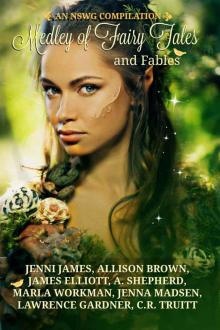 Medley of Fairy Tales and Fables
Medley of Fairy Tales and Fables Lord Atten Meets His Match (Regency Romance Book 3)
Lord Atten Meets His Match (Regency Romance Book 3) Cinderella's Phantom Prince ; Beauty's Mirror
Cinderella's Phantom Prince ; Beauty's Mirror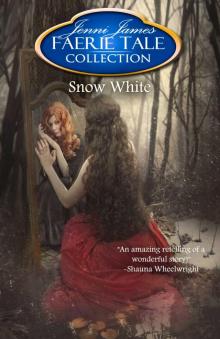 Snow White
Snow White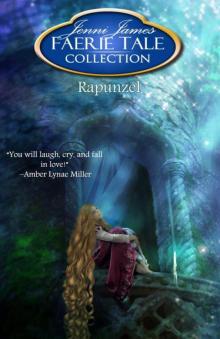 Rapunzel (Faerie Tale Collection)
Rapunzel (Faerie Tale Collection)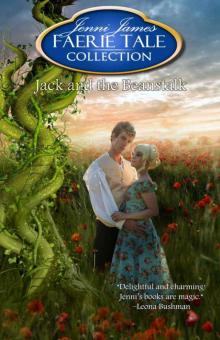 Jack and the Beanstalk (Faerie Tale Collection)
Jack and the Beanstalk (Faerie Tale Collection) Lord Atten Meets His Match
Lord Atten Meets His Match Persuaded (Jane Austen Diaries)
Persuaded (Jane Austen Diaries) PrideandPopularity20July11
PrideandPopularity20July11 Lord Romney's Exquisite Widow
Lord Romney's Exquisite Widow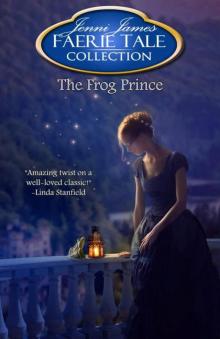 The Frog Prince
The Frog Prince The Little Mermaid (Faerie Tale Collection)
The Little Mermaid (Faerie Tale Collection)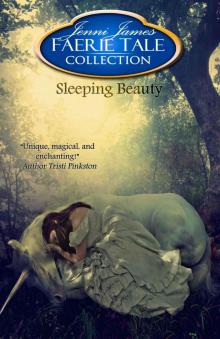 Sleeping Beauty (Faerie Tale Collection)
Sleeping Beauty (Faerie Tale Collection) Jane and Bingley (Countdown to Christmas Book 8)
Jane and Bingley (Countdown to Christmas Book 8) Northanger Alibi
Northanger Alibi My Pride, His Prejudice (Austen in Love Book 1)
My Pride, His Prejudice (Austen in Love Book 1)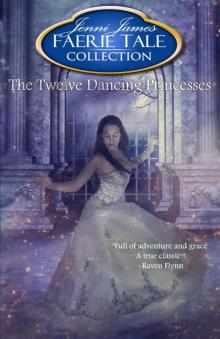 The Twelve Dancing Princesses (Faerie Tale Collection)
The Twelve Dancing Princesses (Faerie Tale Collection) The Bluestocking and the Dastardly, Intolerable Scoundrel
The Bluestocking and the Dastardly, Intolerable Scoundrel Pride and Popularity jad-1
Pride and Popularity jad-1 Sensible and Sensational (The Jane Austen Diaries Book 6)
Sensible and Sensational (The Jane Austen Diaries Book 6)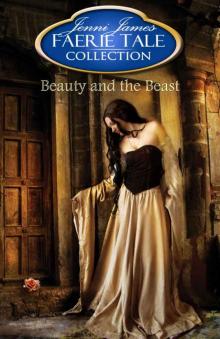 Beauty and the Beast (Faerie Tale Collection)
Beauty and the Beast (Faerie Tale Collection)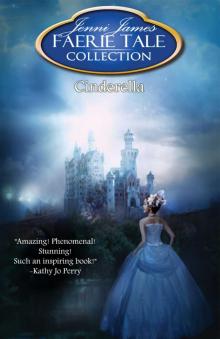 Cinderella (Faerie Tale Collection)
Cinderella (Faerie Tale Collection)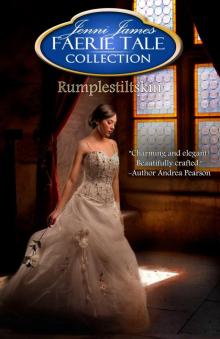 Rumplestiltskin
Rumplestiltskin Not Cinderella's Type
Not Cinderella's Type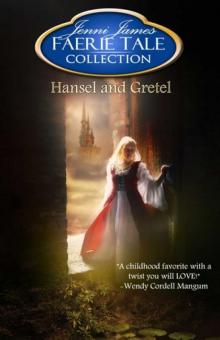 Hansel and Gretel
Hansel and Gretel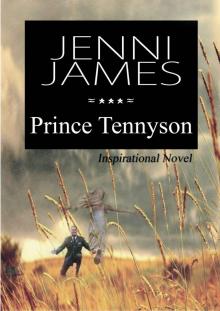 Prince Tennyson
Prince Tennyson NorthangerAlibiInterior
NorthangerAlibiInterior